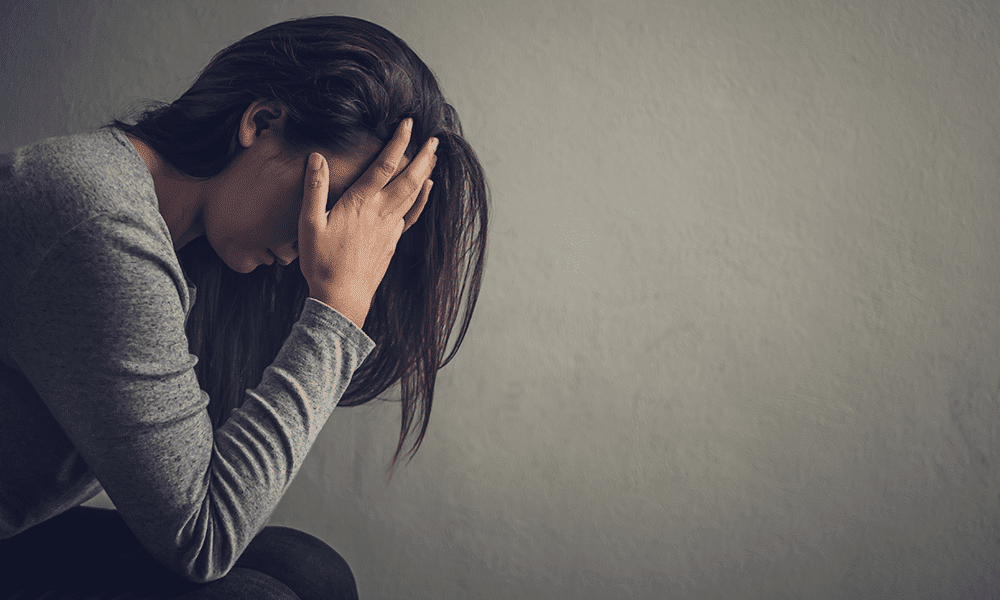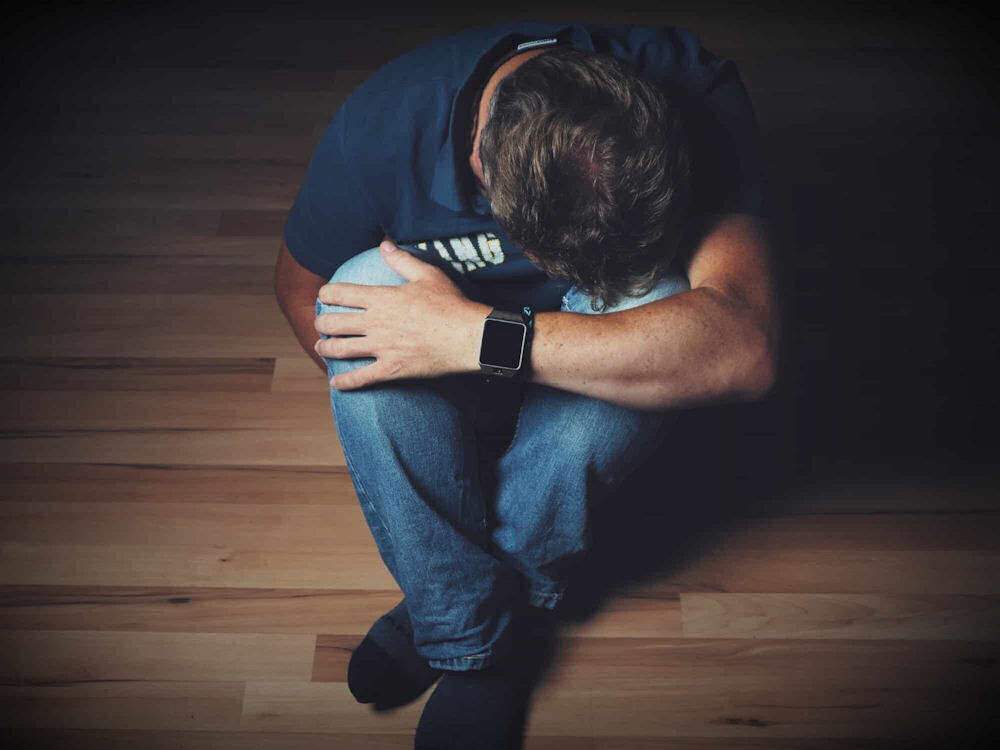 Chronic relapse is a pattern of repeated relapses following treatment for addiction. It can be a difficult problem to overcome, but with the right help and support, it is possible to break the cycle of chronic relapse and achieve lasting recovery.
Chronic relapse is a pattern of repeated relapses following treatment for addiction. It can be a difficult problem to overcome, but with the right help and support, it is possible to break the cycle of chronic relapse and achieve lasting recovery.
There are many factors that can contribute to chronic relapse, including underlying mental health issues, chronic stress, triggers, and lack of a supportive network. Often, people who struggle with chronic relapse have not had adequate treatment for their addiction, or they may have relapsed after a period of abstinence.
Casco Bay Recovery offers comprehensive treatment for chronic relapse, including, individual therapy, group therapy, medication management, and aftercare planning. Our goal is to help you overcome your substance abuse issues.
Addiction: The Chronic Relapsing Disease
Chronic relapsing disease is defined as a chronic, recurring illness characterized by periods of remission and relapse. In the context of addiction, this means that someone who suffers from a chronic relapsing addiction will struggle with recurring episodes of drug or alcohol use, despite their best efforts to stay sober.
There are many chronic diseases that follow a similar pattern of relapse and remission, such as depression, anxiety, and even some chronic physical illnesses like asthma and hypertension. However, chronic relapsing addiction is unique in that it is both chronic and progressive. This means that each time someone with chronic addiction relapses, they are at risk of further damaging their health, both physically and mentally. In addition, chronic relapsing addiction is often accompanied by other mental health disorders, which can make recovery even more difficult.

Statistics Regarding Chronic Relapse
The National Institute on Drug Abuse reports between 40-60% of individuals suffering from substance abuse relapse within the first year of attempting to remain in recovery. However, if someone is able to abstain from substance use after 2 years that percentage drops to below 40%. These statistics are similar to individuals who suffer from asthma and hypertension, proving addiction to be a chronic condition for many.
It’s interesting to note that men are typically more likely to relapse than women. The National Institute on Drug Abuse also reports that 51% of women remain in recovery after treatment vs. 25% of men. This highlights a somewhat stark difference in the role that addiction plays in substance abuse.
Stages of Relapse
Substance abuse relapse often occurs in stages. The first is emotional relapse, the second is mental relapse, and the final stage is physical relapse. Physical relapse signifies the actual act of using once again.

Emotional Relapse
Emotional relapse is often the first stage of relapse. It’s characterized by negative emotions like anger, fear, worry, and depression. These feelings can trigger a person to begin using again as a way to cope. Recognizing the signs of emotional relapse in a loved one can be crucial in stopping the next steps to materialize.
If you notice your loved one is no longer attending support meetings and isolating themself it might be an indicator they are struggling.
Mental Relapse
Mental relapse is when a person begins thinking about using again. They may start daydreaming about getting high or drinking. They may even talk about using with friends or family members. This stage is often very dangerous because it’s when a person is most likely to give in to temptation and use again.
Physical Relapse
Physical relapse is the final and most dangerous stage of relapse. This is when a person actually begins using again after being in recovery. Physical relapse can happen quickly and unexpectedly. It’s important for people in recovery to be aware of the warning signs of relapse so they can get help before it’s too late.
Why People Relapse
There is no single cause of chronic relapse. Instead, there are a number of factors that can contribute to the development of this disease. However, by being better understanding of what those contributing factors may be, it can help someone address them better during their next round of treatment.
Genetic Factors or Their Current Living Situation
Some people are more susceptible to chronic relapse because of their genes. If chronic relapse runs in your family, you may be more likely to develop the disease yourself. Additionally, people who come from homes where there was abuse or neglect or who have experienced trauma are also at a higher risk for chronic relapse.
Also, if you’ve grown up in a home or currently live in a home where other members actively engage in substance abuse, it’s very difficult to remain sober. Sober homes can help people get back on their feet and remain in recovery so they can live independently of a home where substance use occurs.
Never Completed Addiction Treatment
If you’ve never completed an addiction treatment program, you’re more likely to chronic relapse. It’s important to finish the entire treatment plan in order to give yourself the best chance at a successful recovery.
Never Really Wanted to Stop Using
Physical relapse is the final and most dangerous stage of relapse. This is when a person actually begins using again after being in recovery. Physical relapse can happen quickly and unexpectedly. It’s important for people in recovery to be aware of the warning signs of relapse so they can get help before it’s too late.
Lack of Sober Support System
One of the most important things for people in recovery is a strong support system. If you don’t have any sober friends or family members to help you through tough times, it can be very difficult to stay on track. A lack of a sober support system can lead to chronic relapse.
Trying to Quit “Cold Turkey”
Quitting “cold turkey” is rarely successful and often leads to chronic relapse. It’s important to seek professional help when trying to quit drugs or alcohol. Treatment programs help individuals address the underlying psychological reasons for addiction. Understanding these is necessary to remain in recovery
Never Addressed Underlying Mental Health Concerns
Individuals who suffer from chronic relapse often never addressed the underlying mental health concerns that led to addiction in the first place. These could include trauma, depression, anxiety, or other mental disorders. Without proper treatment, it’s difficult to stay sober long-term.
Failed to Learn Effective Coping Skills
In order to stay sober, individuals must learn how to cope with stressors and triggers in their environment. Without effective coping skills, it’s easy to fall back into old patterns of drug or alcohol use.
Continued Mixing with the Wrong Crowd
One of the biggest relapse triggers is a continued association with people who still use drugs or alcohol. Or, even attending bars and clubs that you used to frequent. It’s important to have a support system of sober people in order to maintain sobriety. It’s also important to stay away from places that will trigger your substance use.
It may be difficult to let go of old relationships with people who you considered to be friends, while in addiction treatment you will meet other people that will help you stay on track. You’ll discover new hobbies and experiences that will give you fulfillment while in recovery.
Overall Lack of Effort or Lack of Planning
If you’re not putting in the effort to stay sober, or if you’re not planning ahead, chronic relapse is more likely to happen. It takes a lot of work to stay sober, and if you’re not willing to put in the time and effort, it’s going to be difficult to maintain your sobriety.
Casco Bay Recovery can help you overcome chronic relapse with our comprehensive treatment program. We will help you develop a solid foundation in recovery and provide you with the tools you need to maintain sobriety for the long term. If you or someone you know is struggling with chronic relapse, please contact us today. We are here to help!
Signs of Chronic Relapse in a Loved One
If you have a loved one who is struggling with chronic relapse, there are some signs you can look for. These include:
- Not attending support groups or therapy
- Lying about or hiding emotions
- Isolating from family and friends
- Struggling to meet work or school obligations
- Engaging in risky behaviors
- Experiencing financial problems
- Poor self-care
- Issues with sleep
- Lack of overall energy and enthusiasm
If you notice any of these signs in your loved one, it’s important to reach out for help. Chronic relapse is a serious problem and it’s not something that someone can overcome on their own. With the right help, however, chronic relapse is something that can be overcome.
Treatment for Chronic Relapse
The first step in getting the right treatment is evaluating what’s been attempted previously. Did any prior therapy programs leave an impact? Did the person need to attend a longer treatment program? The best way to go about this is to talk to a professional addiction treatment facility for a proper diagnosis. They can help you better understand treatment options and how to address chronic relapse.
Get the Right Treatment and Diagnosis
Getting the right treatment starts with a full evaluation of the individual’s medical history, treatment experience, and pattern of substance use behaviors. How long have they been engaging in substance abuse? What substances have they struggled with? These are all questions the facility will need answers to create a well-rounded program.
These factors will determine what form of treatment is best suited for the individual. In terms of chronic relapse, its often recommended that someone attend a residential treatment program or a partial hospitalization program. These are the two most intensive programs and lead to a higher rate of success. After starting with these programs it’s recommended to follow the continuum of care by attending a step-down program like an intensive outpatient program and/or an outpatient program.
Ongoing Aftercare Support
After finishing up with appropriate outpatient treatment, the individual should attend a sober living facility or enroll in an aftercare support program. These options provide additional support for people that are transitioning out of treatment into the real world. They can provide the support necessary to help someone remain in recovery.
Find Proper Treatment for Chronic Relapse
Casco Bay Recovery can help people overcome chronic relapse by providing a safe and supportive environment. Chronic relapse is a difficult disease to overcome but it’s not impossible. With the right treatment and support, you can recover from chronic relapse and live a sober life. Casco Bay Recovery can help you every step of the way on your journey to sobriety.
We offer a variety of addiction treatment programs that are tailored to meet your unique needs so that you can find success in recovery. Contact us today to learn more about how we can help you or your loved one overcome chronic relapse. Our team of professionals is here to support each person on their journey to sobriety.
References:
https://www.samhsa.gov/data/quick-statistics-results?qs_type=nssats&state=United%20States&year=2020
https://nida.nih.gov/publications/drugs-brains-behavior-science-addiction/treatment-recovery

